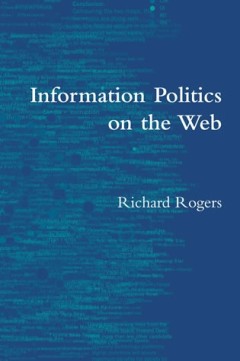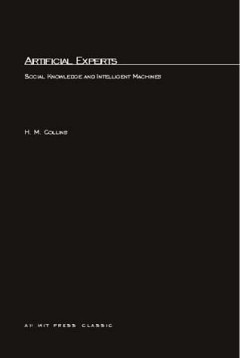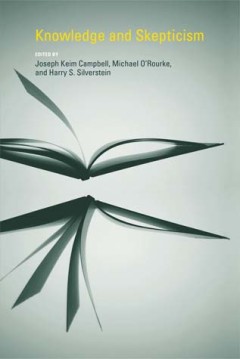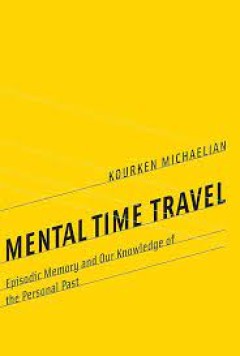Filter by

Information politics on the Web
Does the information on the Web offer many alternative accounts of reality, or does it subtly align with an official version? In Information Politics on the Web, Richard Rogers identifies the cultures, techniques, and devices that rank and recommend information on the Web, analyzing not only the political content of Web sites but the politics built into the Web's infrastructure. Addressing the …
- Edition
- -
- ISBN/ISSN
- 9780262256872
- Collation
- 1 online resource (xi, 200 pages) : illustrations
- Series Title
- -
- Call Number
- 001 ROG i

Anti-individualism and knowledge
"A Bradford book."Contemporary philosophy of mind is dominated by anti-individualism, which holds that a subject's thoughts are determined not only by what is inside her head but also by aspects of her environment. Despite its dominance, anti-individualism is subject to a daunting array of epistemological objections: that it is incompatible with the privileged access each subject has to her tho…
- Edition
- -
- ISBN/ISSN
- 9780262269346
- Collation
- 1 online resource (xiv, 339 pages).
- Series Title
- -
- Call Number
- -

Artificial experts :social knowledge and intelligent machines
In Artificial Experts, Collins explains what computers can't do, but he also studies the ordinary and extraordinary things that they can do. He argues that the machines we create are limited because we cannot reproduce in symbols what every community knows, yet we give our machines abilities by the way we embed them in our society. He unfolds a compelling account of the difference between human…
- Edition
- -
- ISBN/ISSN
- 0262255936
- Collation
- 1 online resource (xiii, 266 pages) :illustrations.
- Series Title
- -
- Call Number
- -

Knowledge and skepticism, Volume 5
There are two main questions in epistemology: What is knowledge? And: Do we have any of it? The first question asks after the nature of a concept; the second involves grappling with the skeptic, who believes that no one knows anything. This collection of original essays addresses the themes of knowledge and skepticism, offering both contemporary epistemological analysis and historical perspecti…
- Edition
- -
- ISBN/ISSN
- 9780262265782
- Collation
- 1 online resource (viii, 367 pages, 4 unnumbered pages of plates) :illustrations (some color).
- Series Title
- -
- Call Number
- -

Mental time travel episodic memory and our knowledge of the personal past
"In this book, Kourken Michaelian builds on research in the psychology of memory to develop an innovative philosophical account of the nature of remembering and memory knowledge.\sCurrent philosophical approaches to memory rest on assumptions that are incompatible with the rich body of theory and data coming from psychology.\sMichaelian argues that abandoning those assumptions will result in a …
- Edition
- -
- ISBN/ISSN
- 9780262334570
- Collation
- 1 online resource (xx, 291 pages) :illustrations.
- Series Title
- -
- Call Number
- -

How knowledge grows :the evolutionary development of scientific practice
"An argument that science is indeed 'socially constructed' but in a way that exposes it to a Darwinian version of variability and selection which ensures its success"--OCLC-licensed vendor bibliographic record.
- Edition
- -
- ISBN/ISSN
- 0262371596
- Collation
- 1 online resource.
- Series Title
- -
- Call Number
- -

Out of the cave :a natural philosophy of mind and knowing
"A grand, unified "natural philosophy of mind" that draws equally from the embodied cognition and cognitive neuroscience literature"--OCLC-licensed vendor bibliographic record.
- Edition
- -
- ISBN/ISSN
- 0262367238
- Collation
- 1 online resource.
- Series Title
- -
- Call Number
- -

World brain
"A compilation of essays by H. G. Wells describing a future world encyclopedia, similar to what we now know as Wikipedia"--OCLC-licensed vendor bibliographic record.
- Edition
- -
- ISBN/ISSN
- 0262365499
- Collation
- 1 online resource.
- Series Title
- -
- Call Number
- -

Active inference :the free energy principle in mind, brain, and behavior
"A much-needed synthesis of active inference, a theory of mind that addresses cognition, behavior, intelligence, & mental disorders and which can be extended to explain behavior in all living systems"--OCLC-licensed vendor bibliographic record.
- Edition
- -
- ISBN/ISSN
- 0262369974
- Collation
- 1 online resource.
- Series Title
- -
- Call Number
- -

True enough
The development of an epistemology that explains how science and art embody and convey understanding.OCLC-licensed vendor bibliographic record.
- Edition
- -
- ISBN/ISSN
- 9780262341370
- Collation
- 1 online resource (xi, 337 pages)
- Series Title
- -
- Call Number
- -
 Computer Science, Information & General Works
Computer Science, Information & General Works  Philosophy & Psychology
Philosophy & Psychology  Religion
Religion  Social Sciences
Social Sciences  Language
Language  Pure Science
Pure Science  Applied Sciences
Applied Sciences  Art & Recreation
Art & Recreation  Literature
Literature  History & Geography
History & Geography